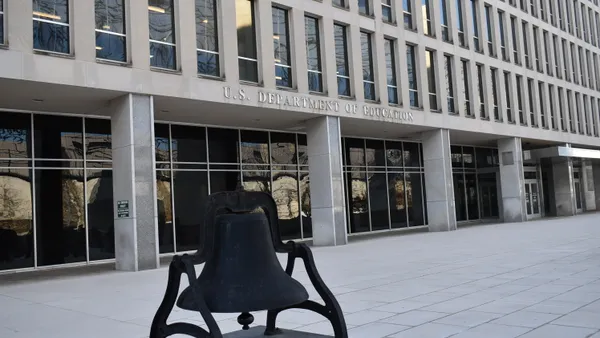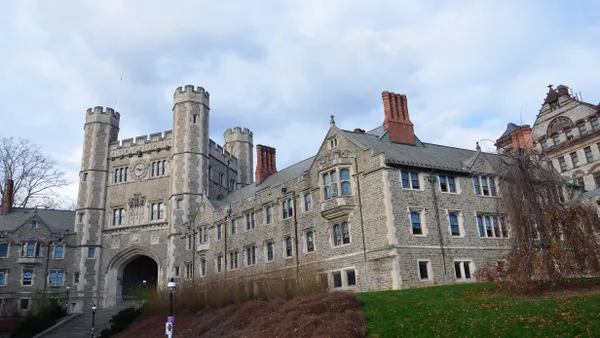Dive Brief:
- Researchers, unions and others sued the National Institutes of Health on Wednesday over the agency’s purge of diversity, equity and inclusion-related research activity that has resulted in lost grant funding and career opportunities.
- Plaintiffs, including dozens of academic scientists, alleged that the agency’s leaders, starting in February, “upended NIH’s enviable track record of rigor and excellence, launching a reckless and illegal purge to stamp out NIH-funded research that addresses topics and populations that they disfavor.”
- They are asking a federal court to block NIH from enforcing its anti-DEI directives both in the short term and permanently and to restore grants to researchers that the agency has cut under the Trump administration.
Dive Insight:
The complaint counts at least 678 research projects that have been terminated by NIH, some of them potentially by the Elon Musk-led Department of Government Efficiency rather than NIH staff.
The recently cut grants amount to over $2.4 billion, the lawsuit noted. Of that, $1.3 billion was already spent on projects “stopped midstream that is now wasted,” and $1.1 billion has been revoked.
Plaintiffs argue that grant terminations “cut across diverse topics that NIH is statutorily required to research,” many of which involve life-threatening diseases. Specifically, they argue that NIH’s actions violate the Administrative Procedures Act and constitutional limits on executive branch authority, and are unconstitutionally vague.
In the lawsuit, filed in U.S. district court in Massachusetts, plaintiffs detailed how their lives, careers and potentially life-saving research have been thrown into turmoil by the NIH’s attack on DEI under President Donald Trump.
Among them is a postdoctoral fellow at the University of New Mexico’s medical school who studies alcohol’s impact on Alzheimer’s risk. The researcher, the first in her family to graduate college, sought a grant created to help promising researchers from underrepresented backgrounds transition to tenure-track faculty positions.
According to the lawsuit, the researcher “satisfies the eligibility criteria for the program and invested months into assembling her application,” but NIH refused to consider it “solely because the program is designed to help diversify the profession.”
Another plaintiff, a Ph.D. candidate at a private California university, had received a high score on a research funding application for a dissertation proposal that would have studied suicide prevention among LGBTQ+ youth experiencing homelessness.
But the candidate learned that new restrictions on LGBTQ-related research meant the NIH would not likely fund the project. The turn of events will harm the researcher's “ability to progress through their PhD program,” the complaint said.
Others include a University of Michigan social work professor whose research focuses on sexual violence in minority communities. The NIH has cut at least six grants supporting her research because the agency said it “no longer effectuates agency priorities,” according to the complaint.
Setting the various cuts in motion was internal NIH guidance, most of it revealed by the news media and cited in the complaint, that directed agency staff to terminate and deny DEI-related grant proposals. One memo instructed NIH officials to “completely excise all DEI activities.”
Staff guidance included research topics for grant terminations. One document forbade three research activity topics: China, DEI and transgender issues. A later document, the complaint alleges, effectively banned research grants around vaccine hesitancy and COVID-19.
NIH did not immediately respond to a request for comment Thursday.
The scale of impact by both DEI cuts and other funding chaos at NIH is broad, cutting across much of the higher ed world. The United Auto Workers, one of the plaintiffs, counts tens of thousands of members who depend on NIH grants for their work and training, according to the lawsuit. It also noted 18,000 full-time graduate students who received their primary federal funding support through NIH in 2022.















